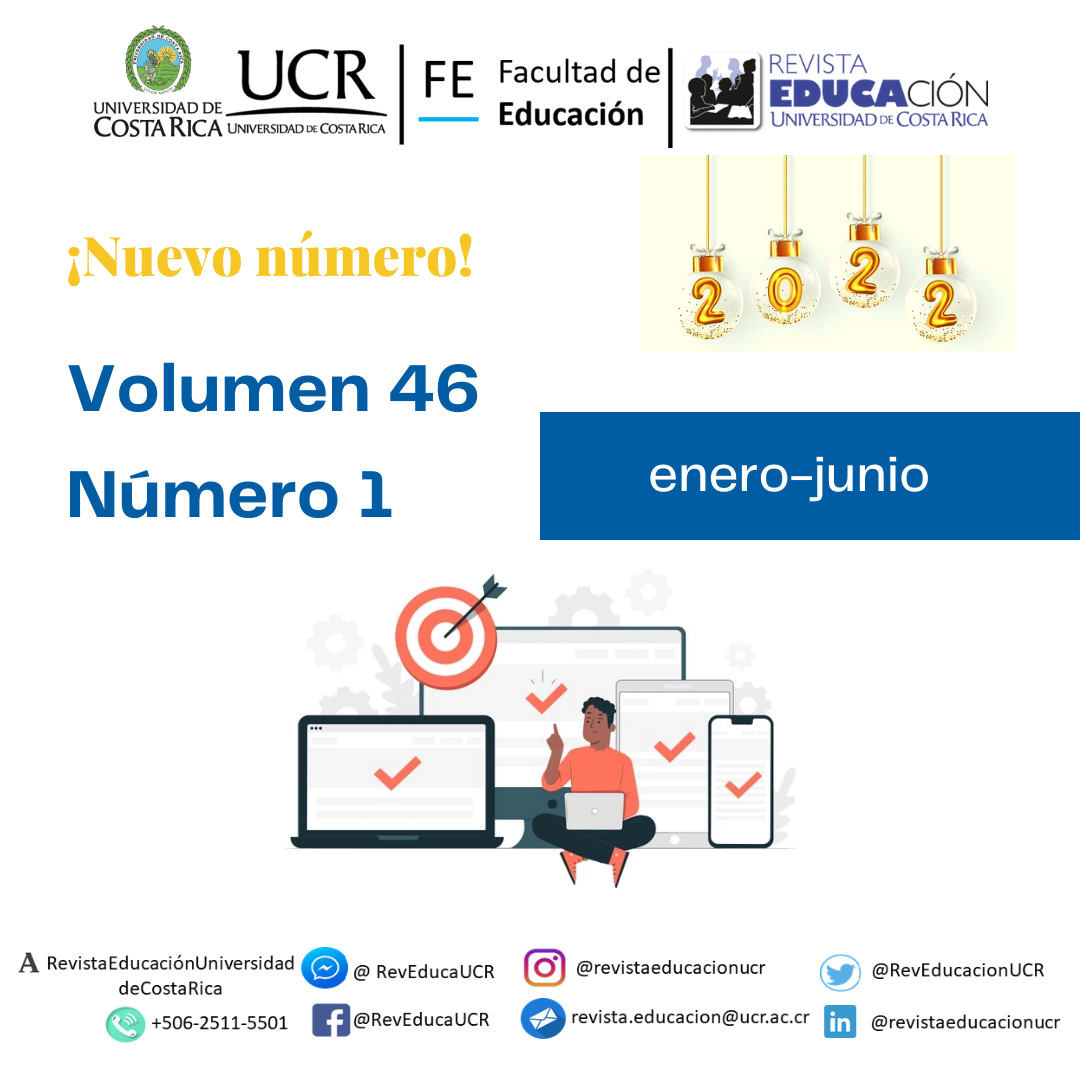Abstract
The scientific community acknowledges that both the problem and hypothesis not only comprise two relevant phases of the scientific method, but also share a common, more substantial element that conforms its very essence - variables. The success and precision required in order to obtain valid knowledge and reliable conclusions in the field of education depends on the rigor used to define such variables. A document-based theoretical study of sources in the field of education adhering to this research methodology and published between 2000 and 2020 was conducted in order to determine if the conditions of the scientific method were met. This study acknowledge that such variables are an intrinsic part of the structure of both the problem and hypothesis. Variables serve as references and are an essential part of the operative statement without contemplating norms or considerations that the researchers must adhere to when establishing such definitions. This study, therefore, presents a three-dimensional conceptual model, that empowers researchers to delimit essential operative and instrumental meanings of variables as a substantial element of the scientific method.
References
Cómo citar:
Arroyo-Valenciano, J. A. (2022). Las variables como elemento sustancial en el método científico. Revista Educación, 46(1). https://doi.org/10.15517/revedu.v46i1.45609
Referencias Bibliográficas
Ackerman, S. y Com, S. (2013). Metodología de la Investigación. Aula Taller.
Arellano, J. (1990). Elementos de Investigación. EUNED.
Arias-Gómez, J., Villasís-Keever M. y Miranda-Novales, M. (2016). El protocolo de investigación IV: las variables de estudio. Alergia México, 63(3), 303-310. https://www.redalyc.org/articulo.oa?id=486755025003
Ary, D., Jacobs, L. y Razavieh, A. (2010). Introduction to Research in Education. [Introducción a la Investigación Pedagógica]. Cengage Learning.
Ávila, H. (2006). Introducción a la metodología de la investigación. Cuauhtémoc. http://www.eumed.net/libros/2006c/203/
Baena, G. (2017). Metodología de la investigación. Patria.
Barrantes, R. (2002). Investigación camino al conocimiento. EUNED.
Bisquerra, R. (2009). Metodología de la Investigación Educativa. La Muralla.
Brenes, A. (2003). Los trabajos finales de graduación: su elaboración y presentación en las Ciencias Sociales. EUNED.
Bunge, M. (2013). La ciencia, su método y su filosofía. Laetoli.
Copi, I. y Cohen, C. (2013). Introducción a la Lógica. Limusa.
Cruz, C., Olivares, S y García, M. (2014). Metodología de la Investigación. Patria.
Espinoza, E. (2018). Las variables y su operacionalización en la investigación educativa. Parte I. Revista Conrado, 14(65), 39-49. https://conrado.ucf.edu.cu/index.php/conrado/article/view/814/845
García, J. (2016). Metodología de la Investigación para Administradores. Ediciones de la U.
Gianella, A. (2010). Introducción a La Epistemología y a la Metodología de la Ciencia. De la Campana.
Gómez, M. (2009). Introducción a la Metodología de la Investigación Científica. Brujas.
Guadarrama, P. (2012) Dirección y asesoría de la investigación científica. Editorial Ciencias Sociales.
Hernández, R., Fernández, C. y Baptista, M. (2010). Metodología de la Investigación. Mc. Graw Hill.
Kerlinger, F. (2000). Investigación del comportamiento técnicas y metodología. McGraw Hill Interamericana.
McMillan, J. y Schumacher, S. (2005). Investigación Educativa. Pearson Educación.
Monroy, M. y Nava, N. (2018). Metodología de la Investigación. Lapislázuli.
Pérez, J. (2007). Las variables en el método científico. Revista de la Sociedad Química del Perú, 73(3), 171-177.
Pérez, R., Galán, A. y Quintanal, J. (2012). Métodos y Diseños de Investigación en Educación. UNED.
Pérez, R. Pérez, L. y Seca, M. (2020). Metodología de la Investigación Científica. Maipue.
Piñero, L. y Perozo, L. (2020). Construcción teórica: sinónimo, definición operacional y sistematización de variables educativas. Revista Científica Electrónica de Ciencias Humanas, 16(47), 16-30. http://www.revistaorbis.org/pdf/51/art2.pdf
Salinas, P. y Cárdenas, M. (2008). Métodos de Investigación Social. Universidad Católica.
Zorrilla, A. y Torres, M. (1992). Guía para Elaborar la Tesis. McGraw Hill.



